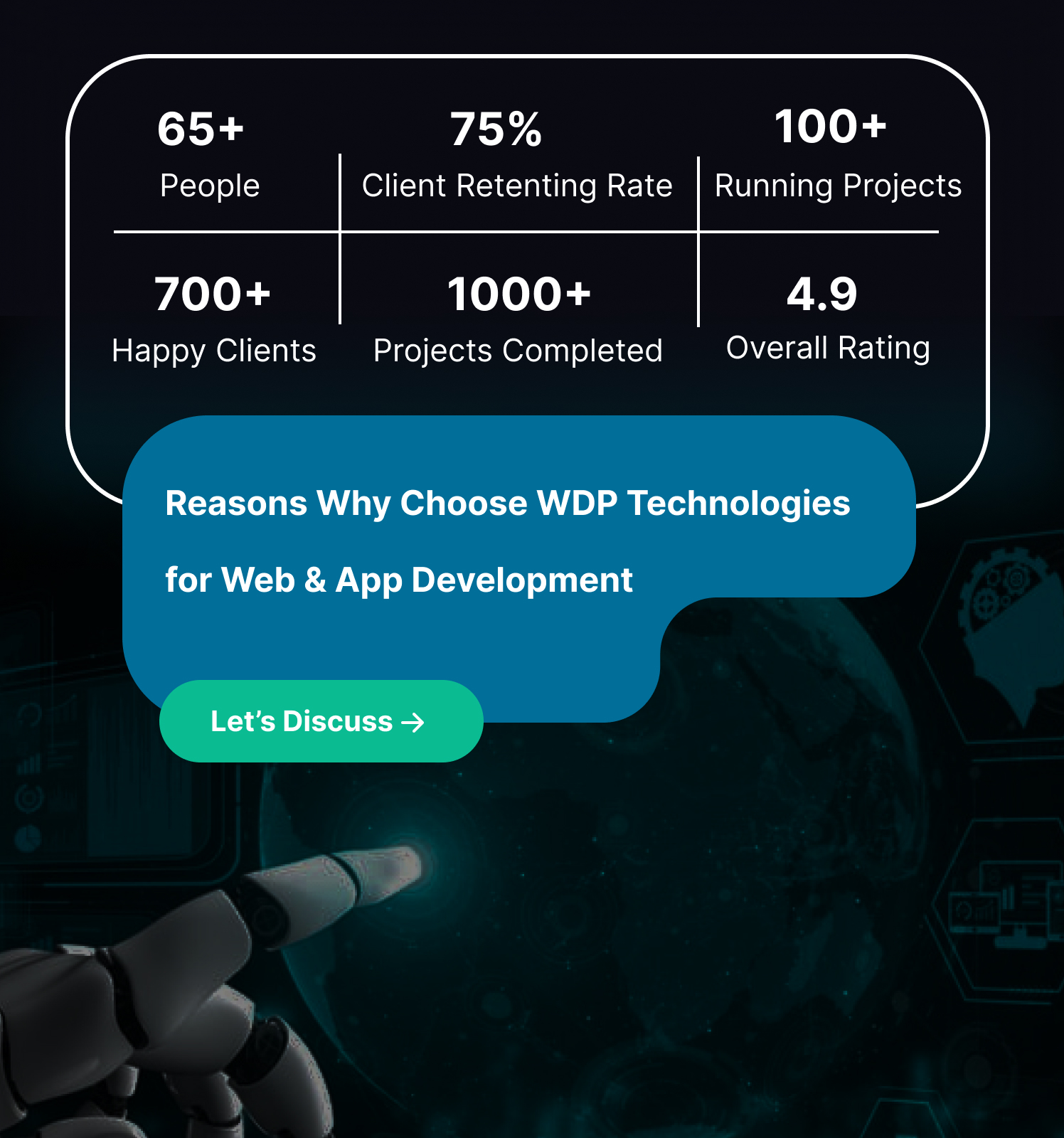Today’s digitalization has made offshore development a more and more common choice for companies wishing to increase their Web & App development capacity. Developers who work offshore are those who are situated in a different location than the client organization.
Cost effectiveness, access to a global talent pool, and availability of skills and talent are some benefits of hiring offshore developers. However, there are certain drawbacks as well, such as communication difficulties and security issues. In this blog post, we’ll go through when to hire offshore developers as well as why, when, and when not to.
Why hire offshore developers?
There are several advantages of hiring offshore developers, which is why many companies are adopting this culture. Some of the explanations why businesses pick to work with offshore developers include the following:
Cost-effectiveness:
The affordability of hiring offshore developers is one of the main justifications. The developer expenses of offshore developers are typically lower than those in developed countries, which can save the hiring organization a lot of money.
Availability of skills and talent:
Access to a worldwide talent pool can be provided by offshore developers, which can be very useful for businesses searching for specialized expertise. For instance, it could be challenging to locate a developer locally who has experience with a certain programming language or technology.
Access to a global talent pool:
Offshore developers can provide access to a global talent pool, which can be particularly beneficial for companies looking for specialized skills. For example, a company may need a developer with expertise in a specific programming language or technology, and it may be difficult to find such a person locally.
Time-zone differences:
Since offshore developers are sometimes situated in separate time zones from the employing organization, they can offer development and support services around-the-clock. This might be especially helpful for businesses that need round-the-clock service.
Scalability:
Scalability offered by offshore developers allows businesses to adjust the size of their development teams as necessary. This might be especially helpful for companies whose development requirements change frequently.
Faster turnaround times:
Due to their knowledge, experience, and ability to operate around the clock, offshore developers can deliver quicker turnaround times. By doing this, businesses may be able to launch goods and services more quickly and meet deadlines.
In general, a corporation can gain a lot from hiring offshore developers, especially where scalability, specialized skills, and financial limits are issues. To make sure they are in line with the company’s aims and objectives, potential offshore developers must first undergo a thorough evaluation. They must also resolve any issues with security threats or communication gaps.
When to hire offshore developers?
Hiring offshore developers can be a good option for companies in various situations. Here are some scenarios when it may be appropriate to hire offshore developers:
Budget constraints:
Offshore developers can be a cost-effective option for companies with limited budgets. Hiring offshore developers can help reduce labor costs while still maintaining quality development work.
Tight deadlines:
Offshore developers can provide around-the-clock development and support, making them an excellent option for companies that need to meet tight deadlines. With the time difference between countries, offshore developers can work on the project overnight, helping to speed up the development process.
Specialized skills:
Offshore developers can provide access to a global talent pool, making them an ideal option for companies that require specialized skills that are not available locally. For example, a company may need developers with expertise in emerging technologies or specific programming languages.
Scalability:
Offshore developers can provide scalability, enabling companies to quickly expand or shrink their development team as needed. This can be particularly useful for companies that need to ramp up development efforts quickly or have fluctuating development needs.
Geographic reach:
Offshore developers can provide geographic reach, helping companies expand their operations into new markets. With offshore developers, companies can have a development team in different parts of the world, helping them to better serve customers in those areas.
Access to diverse expertise:
Offshore developers can provide access to diverse expertise and perspectives, helping companies to innovate and stay ahead of the competition. With offshore developers, companies can access the best talent from around the world, providing them with a competitive advantage.
Hiring offshore developers can be a suitable option for companies in various situations, including when they have budget constraints, tight deadlines, require specialized skills, need scalability, want geographic reach, or access to diverse expertise. However, it is essential to carefully evaluate potential offshore developers to ensure they align with the company’s goals and objectives and address any concerns about communication barriers or security risks.
When not to hire offshore developers?
While offshore developers can provide several benefits, there are also situations when it may not be appropriate to hire them. Here are some scenarios when it may not be advisable to hire offshore developers:
Critical projects:
For projects that are critical to the company’s success or reputation, it may be better to hire local developers. This is because local developers can work closely with the company’s team, understand their culture and communication preferences, and respond quickly to any issues that arise. In contrast, offshore developers may face language and cultural barriers, which can lead to misunderstandings and delays.
Security concerns:
Offshore developers may not be subject to the same data protection and security regulations as local developers, which can be a concern for companies that handle sensitive or confidential information. Additionally, offshore developers may not have the same level of understanding of the company’s security requirements, which can increase the risk of data breaches.
Communication barriers:
Effective communication is critical for the success of any development project. Offshore developers may face language and cultural barriers, which can lead to misunderstandings, delays, and errors. If the company’s team is not proficient in the same language as the offshore developers, it may be challenging to convey the project requirements and expectations effectively.
Lack of quality assurance:
Companies need to ensure that the development work meets their quality standards. Offshore developers may not have the same level of quality assurance processes as local developers, which can lead to quality issues and defects in the final product.
Intellectual property concerns:
Intellectual property (IP) rights can be a significant concern when working with offshore developers. There may be differences in IP laws and regulations between countries, making it challenging to protect the company’s IP. Additionally, offshore developers may not have the same level of understanding of the company’s IP requirements, which can lead to the unauthorized use or disclosure of the company’s IP.
There are situations when it may not be advisable to hire offshore developers. These include critical projects, security concerns, communication barriers, lack of quality assurance, and intellectual property concerns. It is essential to carefully evaluate potential offshore developers to ensure they align with the company’s goals and objectives and address any concerns about communication barriers or security risks so to get out for this Scenario organization must know how to manage offshore development team effectively.
How to find the right offshore developers?
Finding the best offshore developers can be a challenging task, but there are several steps you can take to ensure that you select the best candidates for your project. Here are some tips to help you find the right offshore developers:
Define your requirements:
Before you start looking for offshore developers, you need to define your project requirements. Determine the skills and experience you need for your project and outline the project’s scope, budget, and timeline. This will help you identify the type of developers you need and the level of experience required.
Research offshore developers:
Once you have defined your requirements, start researching offshore developers that meet your criteria. Look for offshore company that have experience in your industry and with your technology stack. Check their websites, reviews, and portfolios to ensure that they have the necessary expertise.
Check references and reviews:
It’s important to check references and reviews from previous clients to assess the offshore developers’ reliability, communication skills, and quality of work. You can also ask for referrals from colleagues or industry associations.
Conduct interviews:
Schedule interviews with the offshore developers to assess their skills, experience, and communication skills. You can conduct the interview via video conferencing or other communication platforms to get a better sense of their communication skills.
Consider cultural fit:
Cultural fit is an essential factor to consider when hiring offshore developers. You need to ensure that they align with your company’s culture and values. For example, if you have a collaborative work environment, you need to ensure that the offshore developers can work well in a team.
Evaluate project management skills:
Project management skills are crucial for successful offshore development. You need to ensure that the offshore developers have a clear project management process, and they can provide regular updates and reports.
Evaluate communication skills:
Communication is a crucial factor in offshore development. Ensure that the offshore developers have excellent communication skills and can communicate effectively in your preferred language.
Finding the right offshore developers requires careful planning and evaluation. Define your project requirements, research offshore developers, check references and reviews, conduct interviews, consider cultural fit, evaluate project management skills, and communication skills. By taking these steps, you can select the best offshore developers for your project and ensure its success.
Read More: Comparing Onshore and Offshore Companies
Conclusion:
Offshore developers can be an excellent option for companies looking to expand their software development capabilities, particularly when budget constraints or specialized skills are a concern. However, it is essential to carefully evaluate potential offshore developers to ensure that they align with the company’s goals and objectives and to address any concerns about communication barriers or security risks. With the right research and preparation, hiring offshore developers can be a highly effective way to expand a company’s development capabilities.












